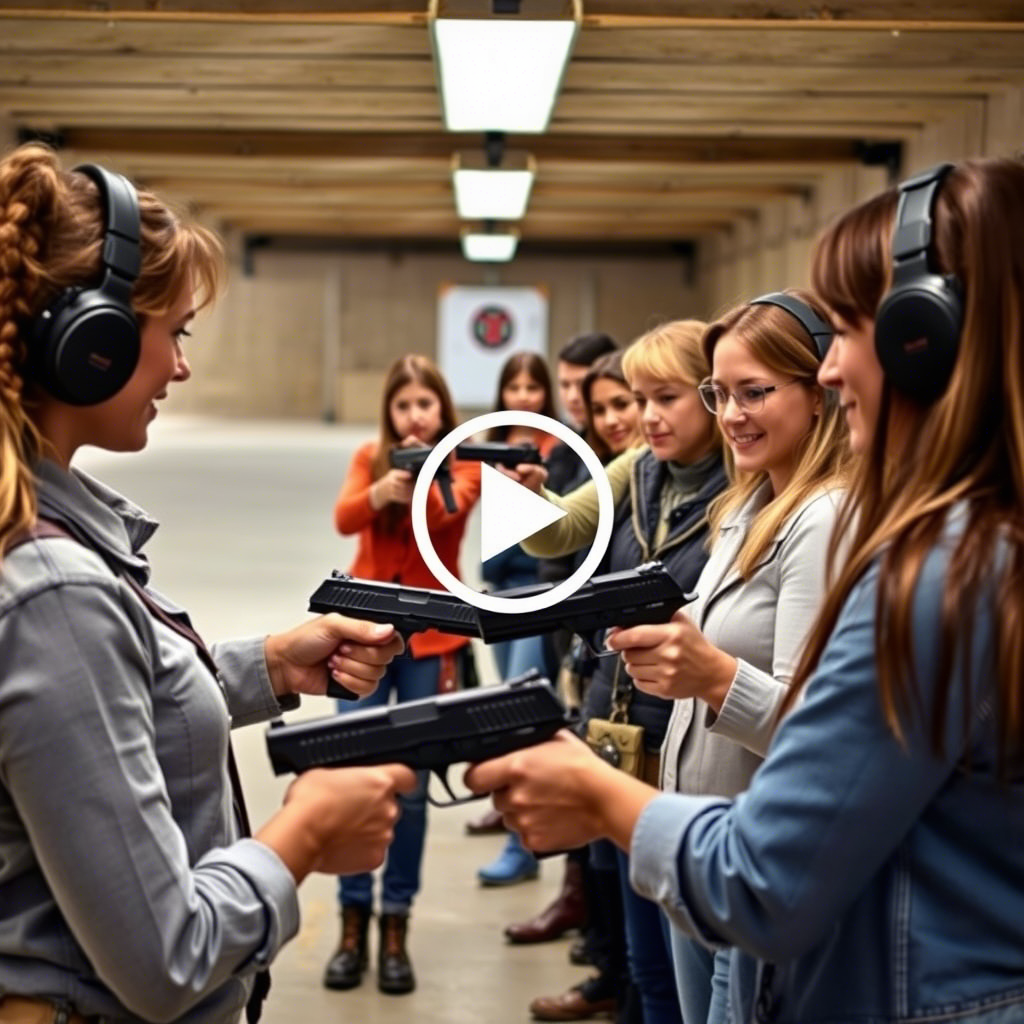Why Women Are Embracing Gun Ownership
In recent years, there has been a noticeable shift in the demographics of gun ownership across the United States. One of the most significant trends is the growing number of women embracing firearms for self-defense, sport, and personal empowerment. This movement challenges traditional stereotypes about who owns guns and why they do so. From suburban mothers to urban professionals, women from all walks of life are taking up arms—not out of aggression but as a means to feel safer, more confident, and better prepared for an unpredictable world.
This article explores the reasons behind this surge in female gun ownership, highlights its societal implications, and offers insights into how women are navigating their newfound roles as firearm owners.
The Rise of Female Gun Owners
Historically, gun ownership has been associated with men—hunters, law enforcement officers, or collectors. However, statistics show that women now make up a rapidly increasing percentage of new gun buyers. According to data from the National Shooting Sports Foundation (NSSF), nearly half of all first-time gun buyers in 2020 were women. Similarly, organizations like A Girl & A Gun Women’s Shooting League report record membership growth, reflecting a broader cultural shift.
So, what’s driving this change? Several factors contribute to the rise of women embracing gun ownership:
1. Heightened Concerns About Personal Safety
One of the primary motivations for women purchasing firearms is self-defense. In today’s climate, where stories of violence dominate headlines, many women feel vulnerable and want practical tools to protect themselves and their families. Whether it’s safeguarding against home invasions, street crime, or domestic threats, owning a gun provides a tangible sense of security. For single mothers, working professionals commuting late at night, or anyone living alone, having access to a firearm can be empowering.
A survey conducted by Pew Research Center found that 84% of women who own guns cite protection as their main reason. The ability to defend oneself physically—and mentally knowing you have the means to do so—can significantly reduce anxiety and fear.
2. Breaking Gender Stereotypes
Another factor contributing to the increase in female gun ownership is the breaking down of gender norms. Traditionally, firearms have been marketed toward men, often using imagery of rugged outdoorsmen or tactical operators. But modern marketing campaigns by companies such as Smith & Wesson and Ruger now feature women prominently, showcasing sleek handguns designed specifically for smaller hands and lighter frames.
Social media platforms also play a role in normalizing gun ownership among women. Influencers and content creators share tips on concealed carry fashion, shooting techniques, and responsible gun handling. These efforts help demystify firearms and encourage women to see them not just as weapons but as tools for independence and confidence.
3. Community Building Through Firearms
Women are finding camaraderie and support through organizations dedicated to female shooters. Groups like A Girl & A Gun, Well-Armed Woman, and Babes with Bullets provide safe spaces for women to learn about firearms without judgment. These communities foster friendships, mentorship, and shared experiences, making the journey into gun ownership less intimidating.
For many women, attending these events isn’t just about learning how to shoot—it’s about connecting with others who understand their concerns and aspirations. The social aspect adds another layer of appeal, turning gun ownership into something more than a solitary pursuit.
Challenges Faced by New Female Gun Owners
While the benefits of gun ownership are clear, becoming a responsible firearm owner comes with challenges. Many women entering this space face unique hurdles, including overcoming misconceptions, dealing with intimidation, and avoiding common mistakes during training.
Overcoming Misconceptions
Some critics argue that women shouldn’t own guns because they lack the physical strength or mental fortitude required to handle firearms effectively. While these claims are baseless, they persist in certain circles. Fortunately, education and advocacy are helping dispel myths. Women are proving that skill and responsibility—not brute force—are the keys to competent gun ownership.
Dealing With Intimidation
Walking into a gun range dominated by experienced male shooters can be daunting for beginners. Some women report feeling judged or dismissed when asking questions or seeking guidance. To combat this, specialized classes tailored to women-only groups have emerged. These environments allow participants to ask questions freely and build confidence at their own pace.
Avoiding Common Mistakes During Training
Even with good intentions, new gun owners—regardless of gender—can fall prey to firearms training mistakes that compromise safety and effectiveness. Examples include improper grip, failing to practice regularly, or neglecting situational awareness drills. Women must prioritize quality instruction and ongoing education to avoid these pitfalls. Resources like online tutorials, local workshops, and expert-led courses can bridge knowledge gaps and ensure safe practices.
Empowerment Beyond Self-Defense
Owning a gun goes beyond the practical application of self-defense; it represents a deeper form of empowerment for many women. It symbolizes autonomy, resilience, and the refusal to be a victim. By mastering a skill traditionally dominated by men, women reclaim agency over their lives and challenge societal expectations.
Moreover, participating in competitive shooting sports like IPSC (International Practical Shooting Confederation) or IDPA (International Defensive Pistol Association) allows women to showcase their abilities while honing precision and focus. These activities blend athleticism with strategy, offering both physical and mental rewards.
Societal Implications
As more women embrace gun ownership, society must adapt to this evolving landscape. Lawmakers, educators, and community leaders need to address the unique needs and perspectives of female gun owners. For instance, creating inclusive policies around concealed carry permits or expanding access to affordable training programs could further encourage responsible gun use.
At the same time, increased female participation in firearms culture challenges outdated narratives about masculinity and power. When women wield guns confidently and responsibly, it disrupts harmful stereotypes and promotes a more nuanced understanding of what it means to be strong.
Conclusion
The growing trend of women embracing gun ownership reflects broader changes in society—greater emphasis on personal safety, dismantling gender barriers, and fostering supportive communities. While challenges remain, the determination and resilience shown by women entering this space demonstrate their commitment to protecting themselves and their loved ones.














Post Comment